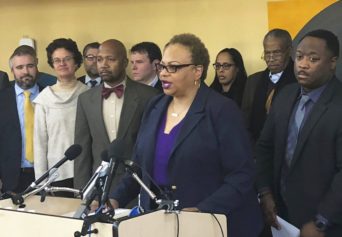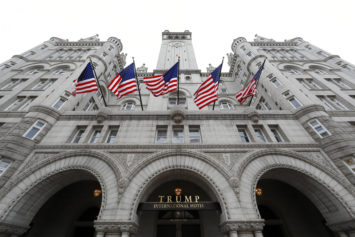
It is the Justice Department’s latest salvo in its efforts to fight Republicans over attempts to restrict voting rights following the June U.S. Supreme Court decision. The Roberts court invalidated a key section of the Voting Rights Act that required jurisdictions with a history of discrimination to receive approval from the Justice Department or a federal court before they could make such changes to their voting laws. The Justice Department previously went after Texas, going to the courts last month to stop that state from implementing a restrictive voting law.
North Carolina’s law was signed last month by the state’s Republican governor, Pat McCrory, who said he was protecting the integrity of the election process by stopping voter fraud, the argument that Republicans have consistently used in passing restrictive new laws. It was immediately challenged in a suit brought by the Advancement Project and the North Carolina NAACP that argued the law will make it harder to vote and racial minorities will be disproportionately affected because they are less likely to have the forms of photo ID required by the law. They also argued that voter fraud is not a significant problem in the state.
Last year The Washington Post reported that News21, a national investigative reporting project based at the Walter Cronkite School of Journalism and Mass Communication at Arizona State University, reviewed 2,068 reported fraud cases since 2000 and found just 10 incidents in which in-person voter impersonation occurred. The project noted that with 146 million registered voters, the results represented about one case of fraud for every 15 million prospective voters.
The Supreme Court ruled that Congress must come up with a new formula to determine the states that should be subject to special scrutiny, which previously had been required in nine states and parts of seven other states.

